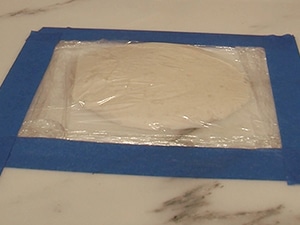How-To Video: Stone Stain Removal
Natural Stone Stains Can Be Removed
The key to successfully treating natural stone stains is cleaning up any spills and treating any resulting stains as soon as you can. The best way to remove a stain on stone or other porous hard surfaces is with a poultice. A poultice is simply a mixture of a chemical or cleaning agent to break down the stain and an absorbent material to draw the stain out of the pores of the stone. You can purchase convenient ready-made poultices or create your own.
Before you attempt to remove a stain, be aware that a stain is a discoloration, but not all discolorations are stains.
A true stain is always darker than the stained material. If it appears as a lighter color it is not a stain, but either a mark of corrosion (etching) made by an acid, or a caustic mark (bleaching) made by a strong base (alkali). In other words, a lighter color “stain” is always surface damage and has no relation whatsoever with the absorbency rate of the damaged material—stone or otherwise. There is not a single exception to this rule.
Stone Stain Removal: The Poulticing Method
As mentioned above, a poultice is the combination of a very absorbent medium (it must be more absorbent than the stone) mixed with a chemical, which is to be selected in accordance with the type of stain to be removed. The concept is to re-absorb the stain out of the stone. The chemical will attack the stain inside the stone, and the absorbent agent will pull them both out together. The absorbent agent can be the same all the time, regardless of the nature of the stain to be removed, but the chemical will be different—in accordance with the nature of the staining agent—since it will have to interact with it.
Please feel free to contact us with any questions you may have about removing a stain from your natural stone.
This is one of a series of articles written and published on behalf of SurpHaces PRO Partners.

